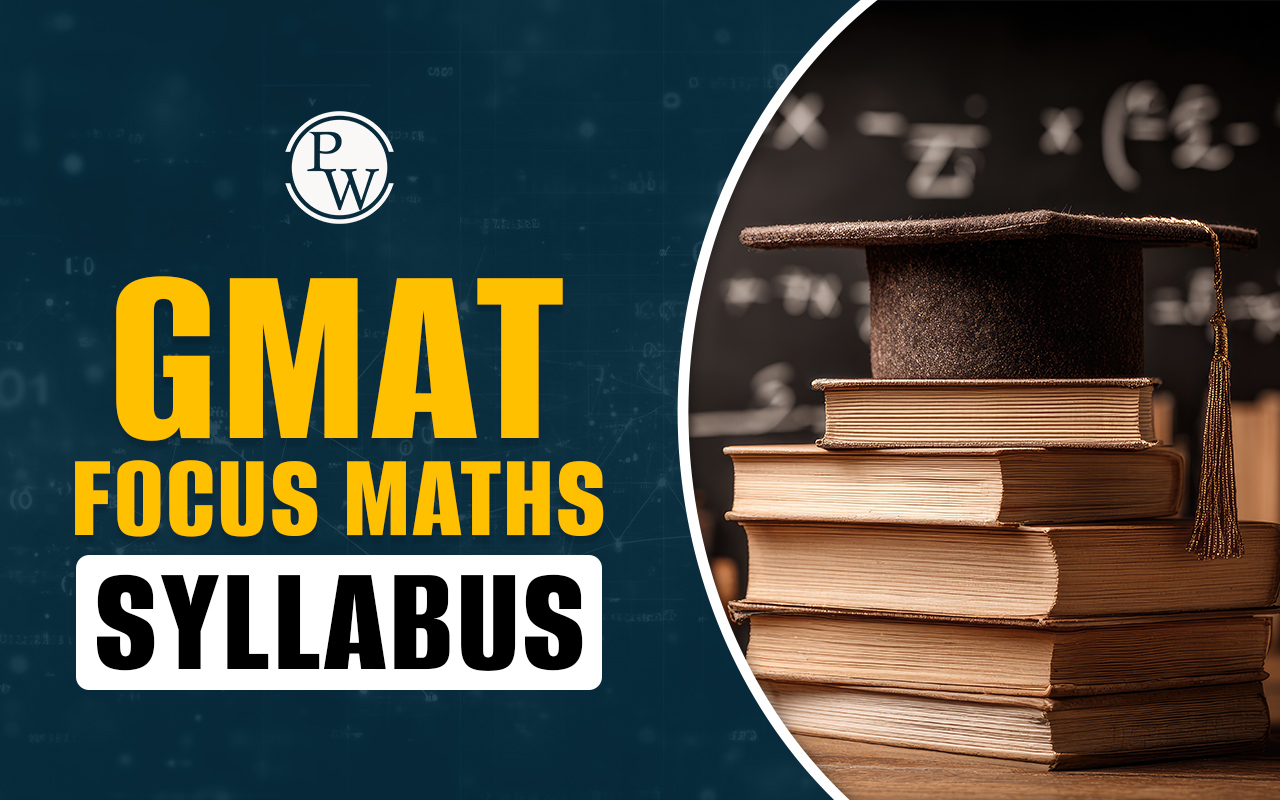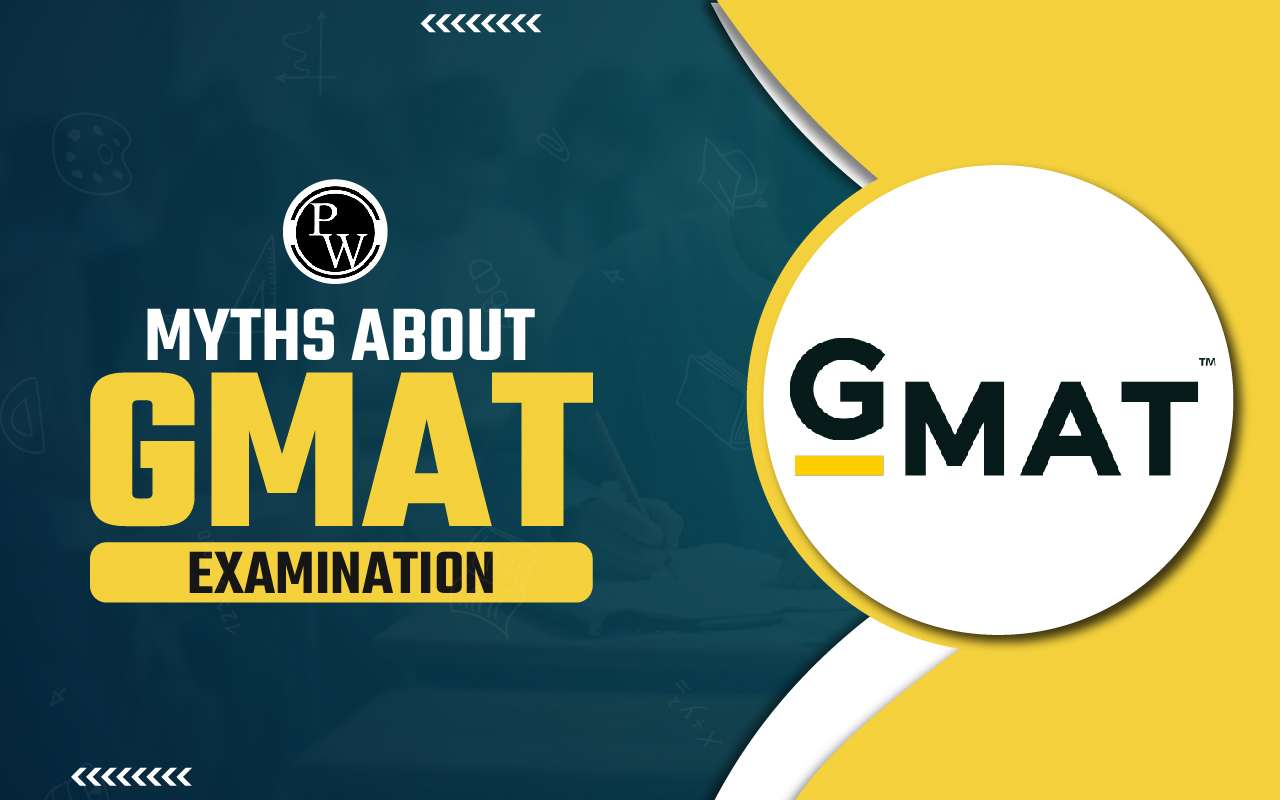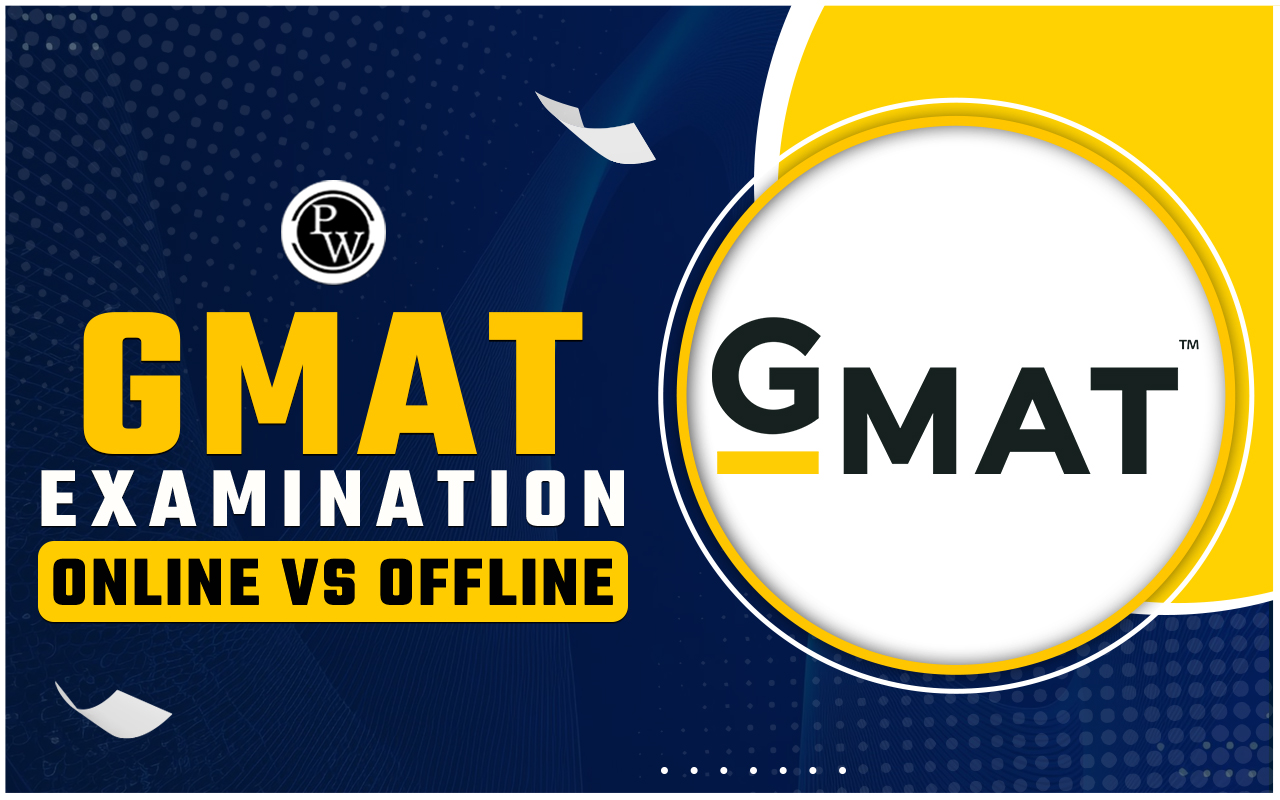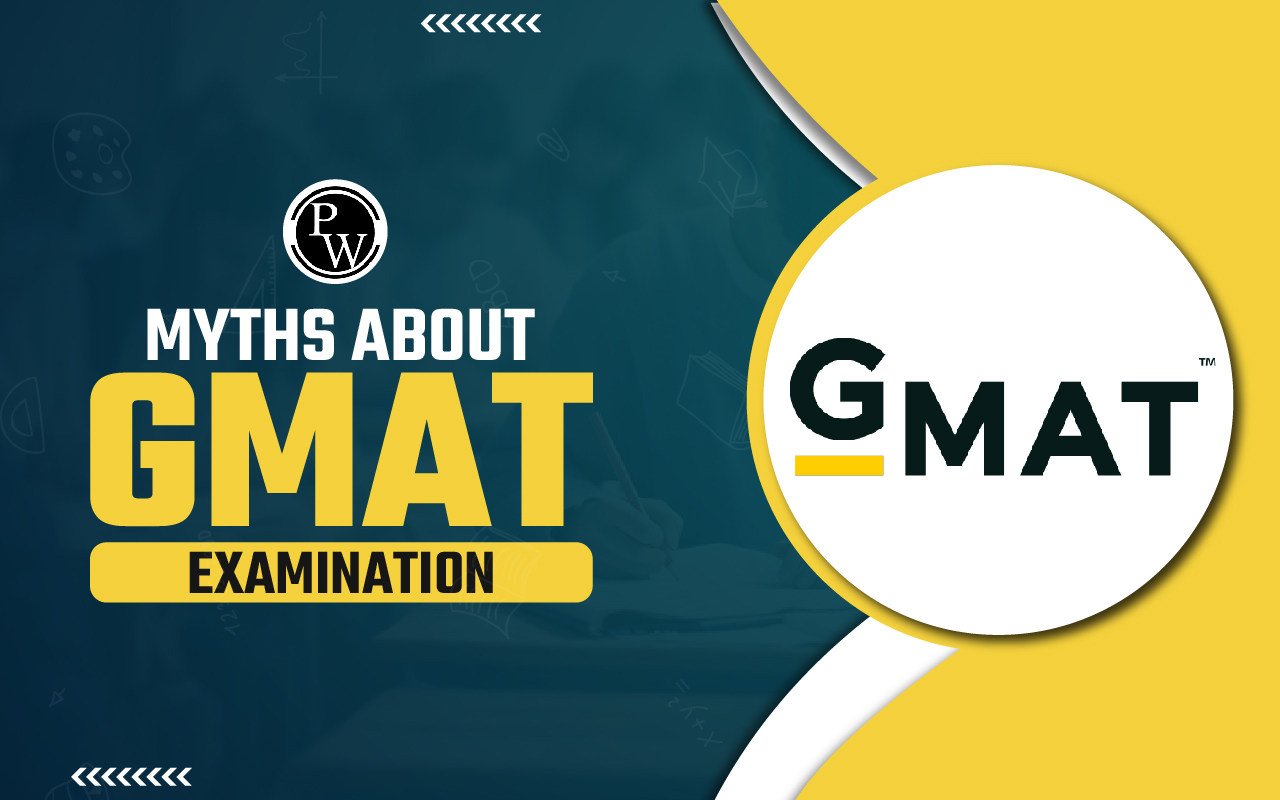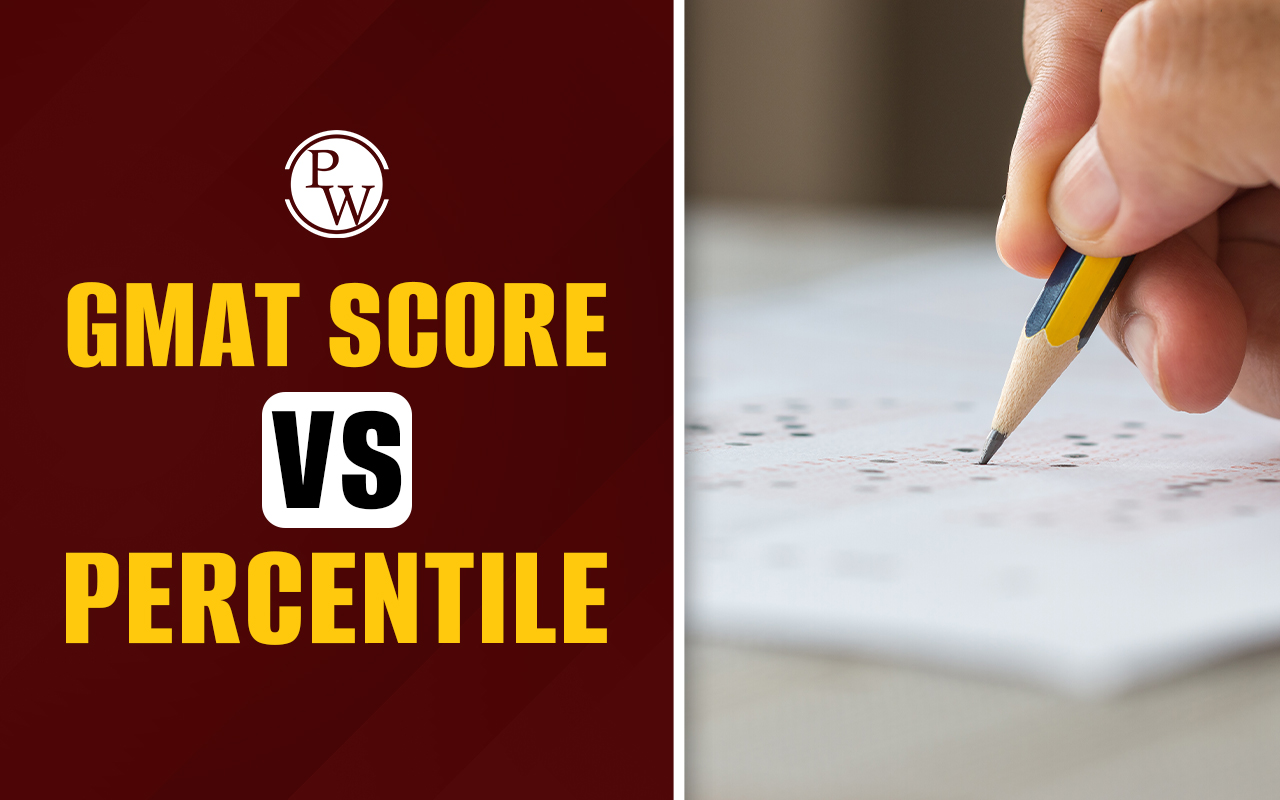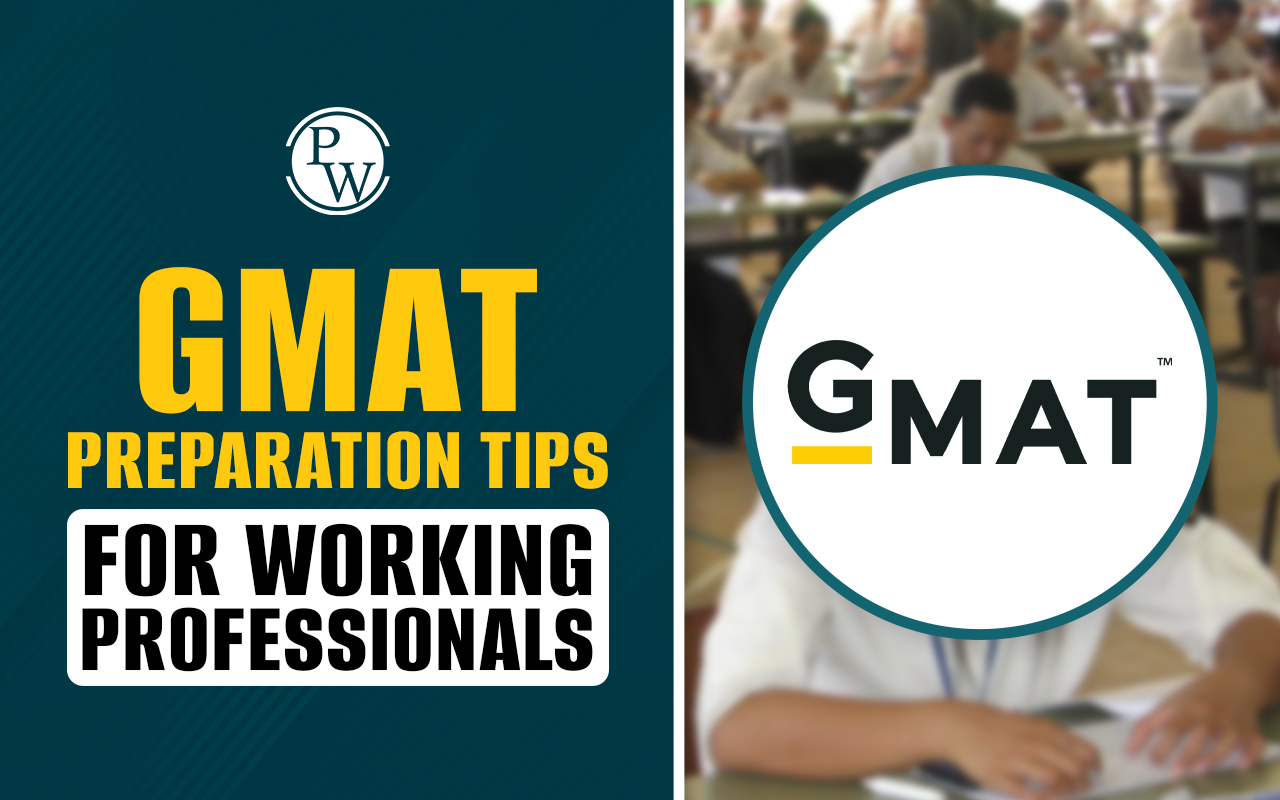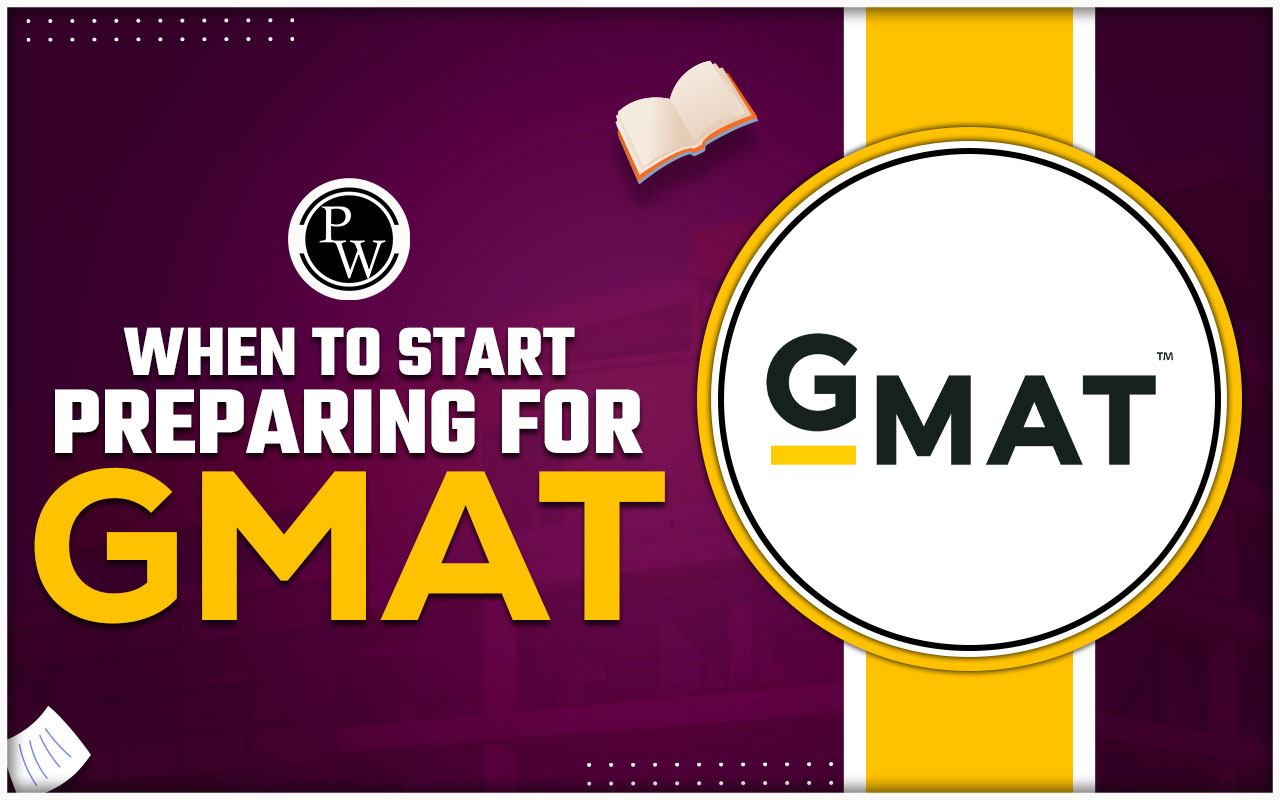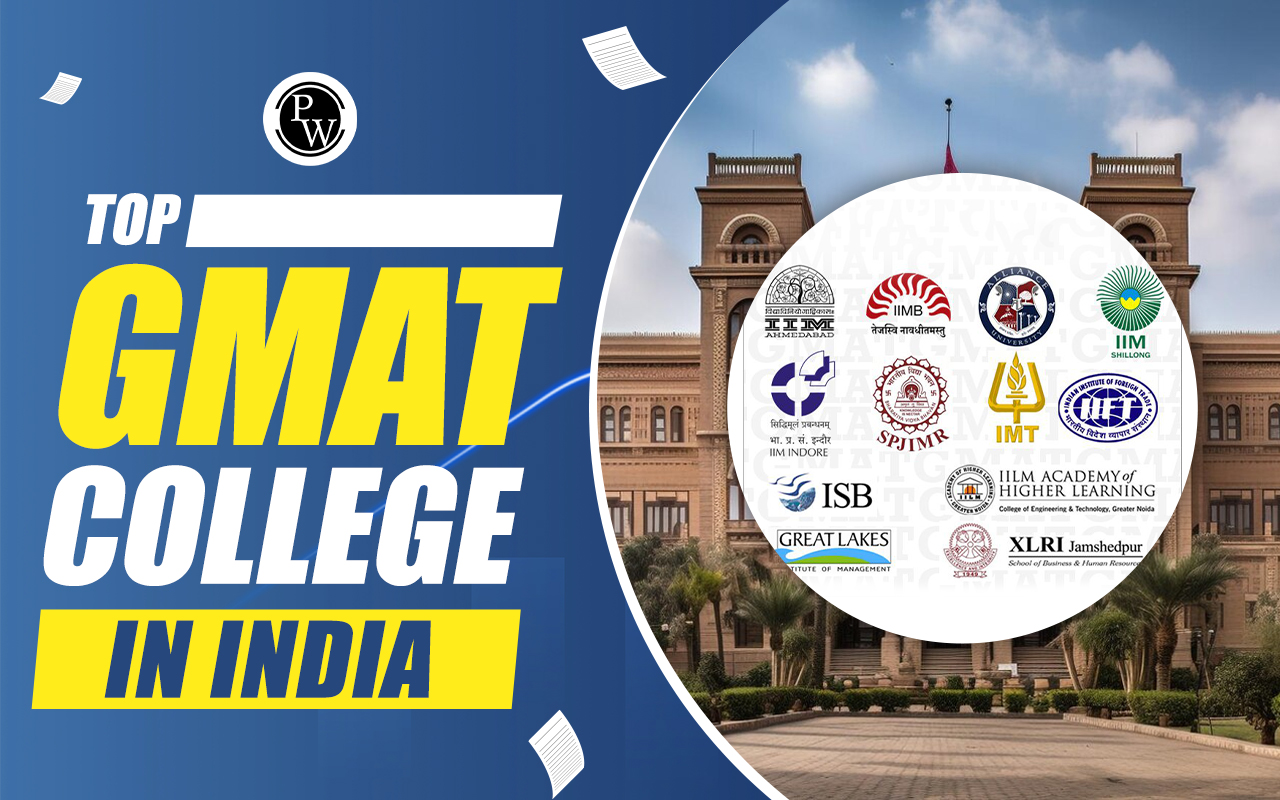
GMAT Exam: Preparing for a high-stakes test like the GMAT can be a challenging and stressful experience. With so much riding on your performance, it's important to avoid making any mistakes that could negatively impact your score. Unfortunately, even the most well-prepared test-takers can make errors that lead to lower scores.
Here we’ll explore 15 common mistakes that students make on the GMAT, and provide tips on how to avoid them. By understanding these common pitfalls, you can increase your chances of success and achieve the score you need to gain admission to your dream business school.Also Read: GMAT Syllabus 2025
15 mistakes you might make on test like GMAT
The Graduate Management Admission Test (GMAT) is a crucial exam for individuals seeking admission to graduate business programs, such as an MBA. It is designed to measure the skills necessary for success in business school, including verbal reasoning, quantitative reasoning, and critical thinking. While preparing for the GMAT, it is essential to avoid common mistakes that could negatively impact your score. Here are 15 mistakes you might make on a test like the GMAT:1: Studying Without a Plan
Some people prepare for the GMAT by taking many practice tests without a clear strategy. They believe that repetition alone will boost their scores. However, this approach often leads to repeating mistakes without improvement. Effective GMAT preparation requires tailoring your study plan to your individual needs, focusing on areas where improvement is needed, and developing specific skills. Quality matters more than quantity in GMAT preparation. Creating a detailed schedule and setting specific weekly goals is crucial. Instead of simply studying for a set amount of time, it's beneficial to focus on targeted activities, such as reviewing specific question types or completing customized practice quizzes.2: Not Using Computerized Adaptive
Practice Tests To accurately gauge your readiness for the GMAT, it's essential to practice under test-like conditions. While prep books offer valuable insights and strategies, they may not replicate the actual test experience. The GMAT is a computerized adaptive test (CAT), meaning it adjusts to your skill level in real time. Therefore, practicing with CAT-format tests is vital for realistic score prediction.3: Not Focusing On Your Weaknesses
Some students allocate equal time to all GMAT sections or prioritize areas where they excel. However, improving weaknesses is crucial for achieving a balanced score across all sections. Identifying and addressing weaknesses, whether in specific question types or fundamental skills, is essential for success. Admissions committees scrutinize score disparities between sections, emphasizing the importance of balanced performance. Prioritizing improvement in weaker areas optimizes your preparation and boosts overall performance on the exam.4: Cramming
Attempting to cram GMAT preparation into a short time frame is counterproductive. Effective preparation requires consistent effort over several months, allowing for the development of necessary skills and strategies. Planning for regular study sessions and dedicating sufficient time to address weaknesses is essential for success. Rescheduling the exam if adequate preparation is lacking is a prudent decision. Prioritizing long-term preparation over last-minute cramming increases the likelihood of achieving desired scores.5: Not Getting Enough Rest
Maintaining emotional and physical well-being during GMAT preparation is crucial for optimal performance. While consistent preparation is necessary, overexertion in the final week can be detrimental. Prioritizing rest and relaxation, especially on the day before the exam, ensures mental clarity and focus during the test. Attempting to study intensively close to the exam may not yield significant benefits. Prioritizing emotional and physical readiness enhances performance on test day.6: Refusing to Guess
Some students spend too much time struggling over difficult GMAT questions or dwelling on the first few questions. However, the GMAT is designed to adapt to your skill level, providing a mix of easy, medium, and difficult questions. It's more important to progress through the entire test than to answer every question perfectly. If you're stuck on a question, use the process of elimination and make an educated guess. Don't dwell excessively on one question; instead, move forward and manage your time effectively.7: Not Taking Notes
Neglecting to take notes during GMAT preparation can hinder performance. While it may seem time-saving, omitting notes can lead to overlooking crucial details, especially in reading comprehension passages. Taking notes helps retain information and avoids unnecessary re-reading. During practice tests and drills, utilize scratch paper or a simulated GMAT scratch pad to mimic exam conditions. Familiarizing yourself with note-taking habits enhances efficiency and accuracy on test day.8: Rushing Through Questions
Some test-takers rush through GMAT questions to save time, risking errors due to incomplete understanding. It's essential to thoroughly read each passage and question to grasp all relevant information and requirements.For instance, critical reasoning questions demand careful consideration to identify the information weakening an argument. Skimming or overlooking details may lead to incorrect answers. Take your time to understand the question fully before selecting an answer.
9: Trying to Beat the Computerized Adaptive Format
Attempting to outsmart the GMAT's adaptive format by predicting question difficulty is futile. The algorithm adjusts based on your responses, making it challenging to anticipate question levels accurately. Rather than fixating on question difficulty, focus on answering each question to the best of your ability. Guess when necessary and prioritize maintaining focus and composure throughout the exam. Trust in your preparation and aim for consistent performance across all question types.10: Avoiding Choice (A) in Sentence Correction
Sentence correction questions present an initial sentence, possibly containing an error. Options (B) through (D) offer rewritten versions, while (A) remains identical to the original (considered the "no error" choice). Many GMAT test-takers hesitate to select option (A) in sentence correction, opting to avoid it. It's crucial not to fall into this pattern and scrutinize for errors that might not exist! Option (A) holds as much potential for correctness as any other choice in sentence correction questions.11: Efficient Approach to Data Sufficiency Problems
Data sufficiency queries assess whether provided statements suffice to solve a mathematical problem. Despite this, many students are tempted to engage in specific calculations, solving for x in an equation, even when unnecessary, thus wasting valuable time. Engaging in such calculations deviates from the query's essence; data sufficiency problems never demand solving equations outright. Instead, they prompt the identification of requisite information for solving an equation or addressing a question. Therefore, investing time in these calculations is typically futile, possibly leading to confusion and incorrect responses. If encountering such challenges, allocate focused practice sessions to tackle data sufficiency exercises, thoroughly review comprehensive answer explanations, and devise a personalized strategy for handling this question type.12: Guarding Against Over-Assumption in Critical ReasoningA prevalent pitfall in critical reasoning is over-assuming. To mitigate this, concentrate solely on the provided information within the initial argument. Avoid relying on external knowledge or extrapolating the given information excessively.
13: Importance of Outlining for Analytical Writing Assessment
Some GMAT examinees, wary of the 30-minute time constraint for the essay, hastily begin writing upon skimming the analytical writing assessment prompt. It's imperative to always craft an outline before commencing the essay writing process. Developing an outline, either on provided scratch paper or in the text box (remember to erase if using the latter), is a pivotal phase in writing preparation. It aids in organizing thoughts, structuring the essay logically, preventing redundancy, and addressing all relevant points. The outlining process shouldn't exceed five to six minutes and ultimately saves time during composition.14: Not using the process of elimination
The GMAT is a multiple-choice test, and the process of elimination can be an effective strategy for answering questions. Make sure you use it to narrow down your options and increase your chances of answering correctly.15: Not seeking help when needed :
If you are struggling with a particular question type or concept, make sure you seek help from a tutor or study group. This can help you improve your skills and increase your chances of success on the GMAT.How to Avoid Common GMAT Mistakes
To avoid common GMAT mistakes, it is essential to understand the nature of these errors and implement specific strategies to minimize them. Here are some of the most common GMAT mistakes and how to avoid them:-
Careless Mistakes :
These occur when you have the necessary knowledge and skills to answer correctly but make a mistake due to inattention or haste. To avoid careless mistakes, follow these steps:- Slow Down : Take your time to read and understand the question thoroughly.
- Double-Check : After solving the problem, double-check your answer to ensure it aligns with the question's requirements.
- Practice : Regular practice will help you become more comfortable with the test format and reduce careless errors.
-
Not Understanding the Question
This mistake occurs when you fail to comprehend the question's requirements fully. To avoid this, follow these steps:- Read Carefully : Read the question carefully, ensuring you understand what is being asked.
- Identify Keywords : Identify keywords in the question that help clarify its requirements.
- Underline Important Information : Underline or highlight critical information to help you focus on what is important.
-
Relying Solely on the Official Guide (OG)
While the OG is a valuable resource, it is not comprehensive. To avoid this mistake, follow these steps:- Use Multiple Resources : Use multiple resources to ensure you cover all the concepts tested on the GMAT.
- Focus on Concepts : Ensure your study materials cover all the concepts tested on the GMAT in depth.
- Practice Methodologies : Learn and practice concrete and logical methods of solving questions.
-
Misconceptions about Accuracy
Many students believe that accuracy is all that matters on the GMAT. However, this is not true. To avoid this mistake, follow these steps:- Focus on Time Management : Practice managing your time effectively to ensure you complete all sections of the test.
- Understand the Test Format : Familiarize yourself with the GMAT format to avoid unnecessary mistakes.
- Develop a Strategy : Develop a strategy for every question type that you can use on every practice test and on the official GMAT.
-
Not Making an Outline for the Analytical Writing Assessment (AWA)
Some students start writing the AWA essay as soon as they skim the prompt. To avoid this mistake, follow these steps:- Create an Outline : Always take the time to create an outline before you start writing your GMAT essay.
- Organize Your Thoughts : Outlining helps you keep your thoughts organized, structure your essay in a way that makes sense, avoid repeating yourself, and address all the points you need to.
-
Failure to Recognize Clue Words
Clue words can indicate that you might be assuming too much. To avoid this mistake, follow these steps:- Identify Clue Words : Identify clue words that indicate assumptions, such as "never," "best," "worst," "all," "none," and "always."
- Evaluate Answer Choices : Evaluate answer choices that include these words more closely.
- Ask Yourself : Ask yourself if you have enough information to come to that conclusion based on the passage alone.
-
Taking the Test Before You Are Ready
Many students assign themselves a deadline to prepare for the test and take it sooner than planned. To avoid this mistake, follow these steps:- Prepare Adequately : Ensure you are adequately prepared before taking the test.
- Create a Study Plan : Create a detailed study plan and stick to it.
- Target Your Weaknesses : Target your weaknesses and practice drills to improve your score.
-
Poor Study Habits
Poor study habits can lead to careless mistakes and a lack of preparation. To avoid this mistake, follow these steps:- Study Effectively : Study effectively by making a detailed study plan, sticking to a schedule, and targeting your weaknesses.
- Use the Best Resources : Use the best resources you can find to prepare for the GMAT.
- Familiarize Yourself with the Test Format : Familiarize yourself with the GMAT format to avoid careless mistakes.
-
Failure to Recreate the Test Environment
Recreating the test environment can help you prepare for the actual test. To avoid this mistake, follow these steps:- Simulate the Test Environment : Simulate the test environment by taking practice tests under similar conditions as the actual test.
- Practice Timed Sections : Practice timed sections to improve your time management skills.
- Review Your Performance : Review your performance to identify areas for improvement.
-
Not Paying Attention to What the Question is Asking
Paying close attention to what every question is asking you to do is essential to avoid careless mistakes. To avoid this mistake, follow these steps:- Read the Question Carefully : Read the question carefully to ensure you understand what is being asked.
- Identify Keywords : Identify keywords in the question that help clarify its requirements.
- Underline Important Information : Underline or highlight critical information to help you focus on what is important.
| Also Read | |
| GMAT Exam Pattern | GMAT 2024 Exam Day Guidelines |
| GMAT Registration | GMAT Exam Date |
| GMAT Admit Card | GMAT Syllabus |
15 mistakes you might make on test like GMAT FAQs
What is the GMAT, and why is it important?
Answer: The GMAT, or Graduate Management Admission Test, is a crucial exam for individuals seeking admission to graduate business programs like an MBA. It assesses skills vital for success in business school, including verbal reasoning, quantitative reasoning, and critical thinking.
What are some common mistakes to avoid while preparing for the GMAT?
Common mistakes to avoid include lack of preparation, not familiarizing yourself with the test format, poor time management, not reading instructions carefully, and misinterpreting questions.
How can I manage my time effectively during the GMAT?
Time management is essential during the GMAT. Practice answering questions quickly and efficiently to avoid running out of time. Familiarize yourself with the test format and allocate time appropriately to each section.
Is using the calculator provided during the GMAT helpful?
Yes, the on-screen calculator provided during the quantitative section of the GMAT can be helpful if used effectively. Ensure you understand how to use it to avoid making calculation errors.
How can I improve my performance on the GMAT?
To improve your performance, practice all question types, take practice tests to build endurance and improve time management, review your work and practice tests thoroughly, and seek help when needed from tutors or study groups.
Talk to a counsellorHave doubts? Our support team will be happy to assist you!

Free Learning Resources
PW Books
Notes (Class 10-12)
PW Study Materials
Notes (Class 6-9)
Ncert Solutions
Govt Exams
Class 6th to 12th Online Courses
Govt Job Exams Courses
UPSC Coaching
Defence Exam Coaching
Gate Exam Coaching
Other Exams
Know about Physics Wallah
Physics Wallah is an Indian edtech platform that provides accessible & comprehensive learning experiences to students from Class 6th to postgraduate level. We also provide extensive NCERT solutions, sample paper, NEET, JEE Mains, BITSAT previous year papers & more such resources to students. Physics Wallah also caters to over 3.5 million registered students and over 78 lakh+ Youtube subscribers with 4.8 rating on its app.
We Stand Out because
We provide students with intensive courses with India’s qualified & experienced faculties & mentors. PW strives to make the learning experience comprehensive and accessible for students of all sections of society. We believe in empowering every single student who couldn't dream of a good career in engineering and medical field earlier.
Our Key Focus Areas
Physics Wallah's main focus is to make the learning experience as economical as possible for all students. With our affordable courses like Lakshya, Udaan and Arjuna and many others, we have been able to provide a platform for lakhs of aspirants. From providing Chemistry, Maths, Physics formula to giving e-books of eminent authors like RD Sharma, RS Aggarwal and Lakhmir Singh, PW focuses on every single student's need for preparation.
What Makes Us Different
Physics Wallah strives to develop a comprehensive pedagogical structure for students, where they get a state-of-the-art learning experience with study material and resources. Apart from catering students preparing for JEE Mains and NEET, PW also provides study material for each state board like Uttar Pradesh, Bihar, and others
Copyright © 2026 Physicswallah Limited All rights reserved.

